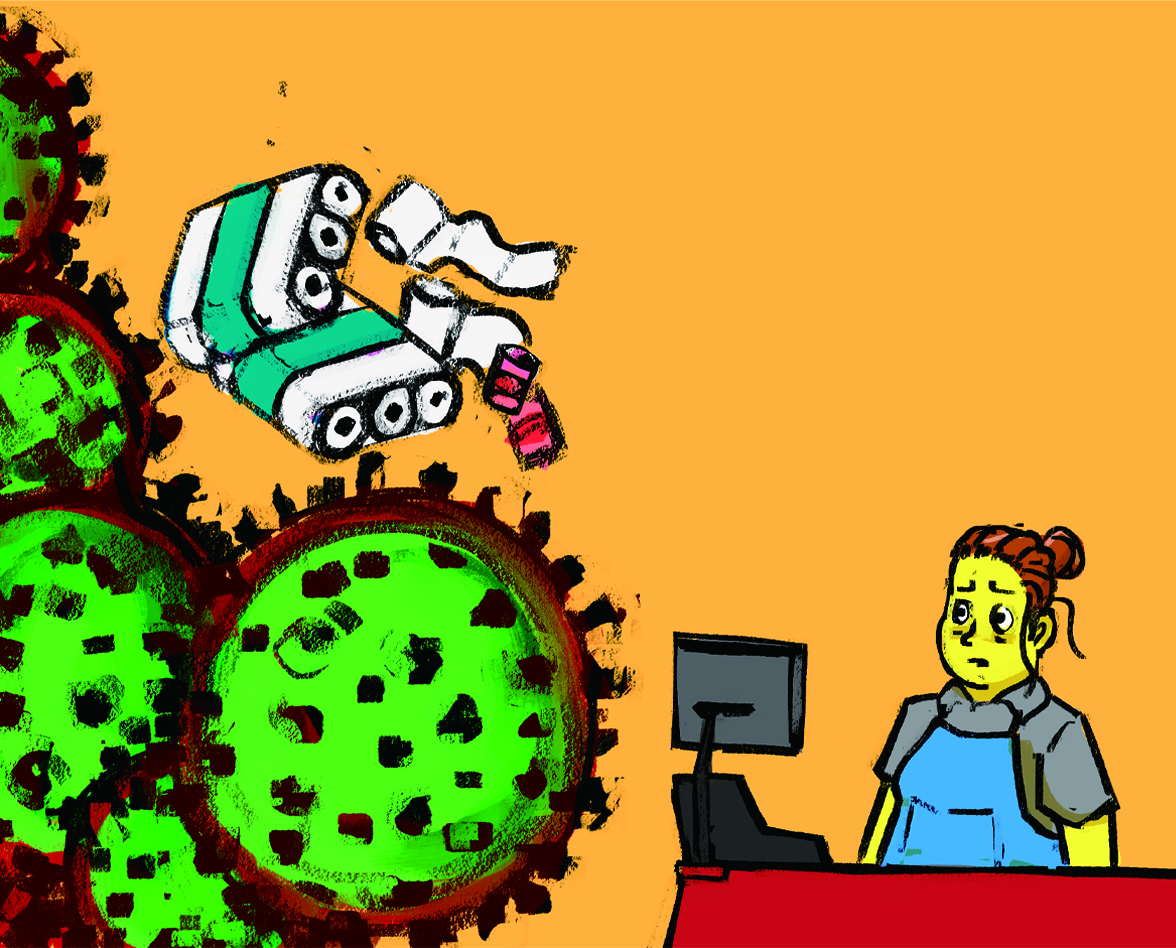As emergency measures continue to be taken by all levels of government, it’s become increasingly clear that these governments act on behalf of a specific, property-owning segment of the population — leaving workers to simultaneously carry the weight of a global pandemic and an economic downturn.
On March 31, Manitoba’s Minister of Health Cameron Friesen issued a public health order, closing all businesses that were not considered essential in an attempt to prevent further spread of the COVID-19 virus.
The businesses that one might deem essential for immediate survival seem to be fairly evident — like those that sell supplies like groceries and those that provide medical care. However, there are a few details that are particularly interesting: lawn care, natural resource exploration, construction and temporary staffing agencies stand out as businesses that the government has deemed essential.
Even more interestingly, the public health order includes no protections for workers on the front lines. There still has yet to be any government intervention that grants workers the right to personal protective equipment (PPE), a sanitary workplace, any kind of hazard pay or even job protection for those that need to self-isolate after developing symptoms of COVID-19.
What this indicates is that many workers — who likely have few other options for income and want to remain employed — are being asked to risk not only their lives, but the lives of their families and those around them for no additional pay and without mandated PPE. These workers are in direct danger of being hit hard by the virus while businesses and their bottom lines remain the priority of the government.
While lauding these workers for their selfless effort is important, a failure to implement safeguards that will adequately protect them from the virus will foster an entire province that simply accepts the inevitability that many workers will likely die as a result.
Many people are faced with a choice: risk continuing to work without proper safety measures or opt for safety and become reliant on whatever government aid is available. Both options are filled with uncertainty and neither guarantees that individuals will be able to live through all of this. After all, both Employment Insurance and the Canada Emergency Relief Benefit only pay out for a finite amount of time, and it’s likely that the impending economic downturn will last long beyond the periods these benefits cover.
Workers are brave in the face of all of this because they have to be. These sacrifices are structurally coerced and in a capitalist society — this has always been the case.
This is because the state is simply the collection of institutions and apparatuses that ensure one class’ domination — or hegemony — over all other classes. This is how capitalist societies have always reproduced themselves and how they maintain a ruling class.
Simply put, the state is precisely that which reproduces the ruling class as the ruling class and normalizes it. This concept is especially powerful in times of crisis because it explains what, to many, would seem like obvious flaws in responses to crises.
The government has subsidized wages rather than providing direct, universal assistance — operations that keep businesses able to expand and maintain investments remain open.
It has instead deemed construction and maintenance like lawn care essential with a lack of mandated hazard pay or protective equipment and chosen to prioritize keeping temporary staffing agencies open to ensure that staff are available to replace those that cannot work.
This is not even beginning to scratch the surface of the massive bailouts for businesses that are likely coming from the federal government — even businesses that should be shuttered due to market forces like the oil and gas sector.
The emergency measures put in place by the provincial and federal governments are clearly not intended to protect workers. This is made even more clear by the fact that around one third of unemployed workers will not be able to access financial help from the government.
The takeaway from all of this is clear: there are no guarantees for any individual worker. Yet there will always be guarantees to businesses: people healthy or desperate enough to perform any work — at whatever wage — deemed essential by a state more concerned with maintaining the economy than anything else.
Canada is dependent on the continued labour of workers and it’s time that it demonstrated this dependence by meeting their basic needs. In this time of crisis, workers deserve a minimum guaranteed income — regardless of employment history or status — a moratorium on rent and utility payments, hazard pay, proper safety precautions and job security if they develop symptoms.
All the property in the world is useless if there is nobody to contribute their labour power, the sole commodity that produces value. Without workers, there is no economy, there is no society. We deserve much, much better.



